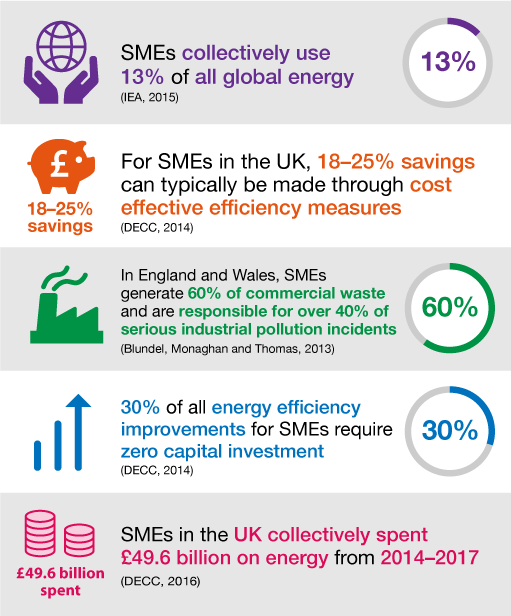1 The business challenge
Engaging with small and medium-sized enterprises (SMEs) can be challenging, but it’s essential if we are to meet climate change targets and address other important environmental problems.
There are nearly six million SMEs in the UK, representing 99.9% of all businesses and collectively they have a large impact on the environment. The term ‘SME’ includes a wide variety of business types, ranging from fairly large manufacturing companies to small family firms, social enterprises and micro-businesses. There is considerable potential for improving their environmental performance. For example, the average SME could save up to 25% of its energy usage through relatively simple, low-cost measures. Unfortunately, for many different reasons SMEs don’t typically take up these opportunities.
While it is generally accepted that policy support is needed, interventions of any kind that affect SMEs tend to be politically charged. Traditional ‘hard-lever’ policies, such as regulation, can have a disproportionate impact on smaller organisations compared with larger organisations. They can struggle with the bureaucracy and paperwork required, and it can also be expensive and time-consuming for government agencies to ensure that such a large number of businesses are complying. For these reasons, incentive-based policies are often preferred when it comes to environmental policy for SMEs. These include financial support such as grants and loans for making investments in energy efficient equipment, or expert advice from sustainability professionals.
The main sources of environmental impact from SMEs is related to the energy they use in the buildings they occupy, and business travel.
We begin by looking at an example of a business [Tip: hold Ctrl and click a link to open it in a new tab. (Hide tip)] that has taken proactive steps towards reducing their environmental impact by collaborating with a local social enterprise.


